Plumbing Problems at Home or Work? Rely on the Delk Plumbing Difference
Even with the best care and upkeep, every homeowner will have to deal with plumbing issues at some point. But finding a reliable plumbing company in Metro Charleston is more challenging than you might think. That's where our plumbers in cityname, state, come in. We at Delk Plumbing are committed to providing our clients with the highest quality craftsmanship, the most reliable service, cost-conscious pricing, and long-lasting solutions. Whether you need help fixing a minor issue like a clogged toilet or you're looking at major water heater repair, we're here to serve you with excellence.
Since 1978, residents and business owners have had a trustworthy source for resolving a wide array of plumbing issues with the friendly folks at Delk Plumbing. We're proud to have built a reputation for exceptional customer service and dependable workmanship for residential and commercial customers.
We go to great lengths to understand our customers' unique needs. You can rest assured that our friendly technicians will arrive on time, work diligently to resolve your issues, and always treat you with respect and kindness. Whether you need help with routine upkeep or want to upgrade your home with new appliances, our staff is by your side.
When you boil it down to the basics, our goal is to treat you the same way we'd like to be treated: with respect, honesty, and top-notch service from experienced plumbing professionals. Delk Plumbing offers a full range of plumbing solutions for your home or business, including:

Plumbing Services

Water Heater Repair
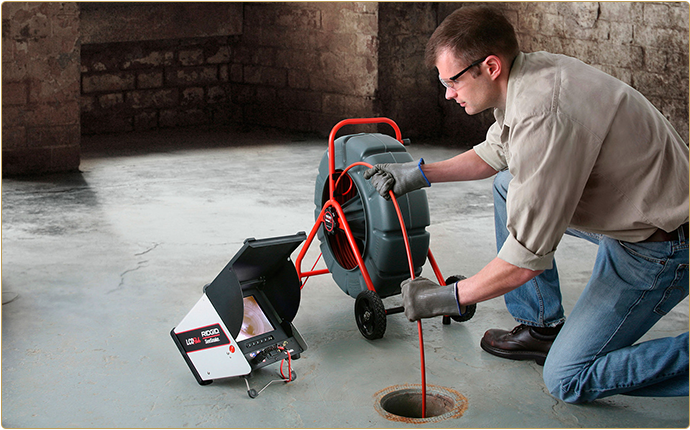
Drain and Sewer Services
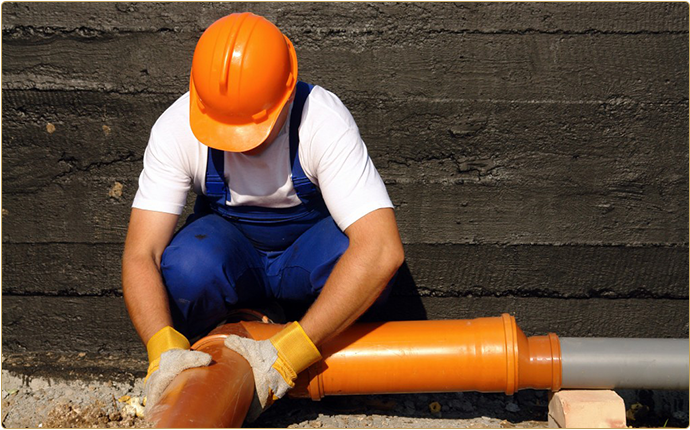
Re-Piping
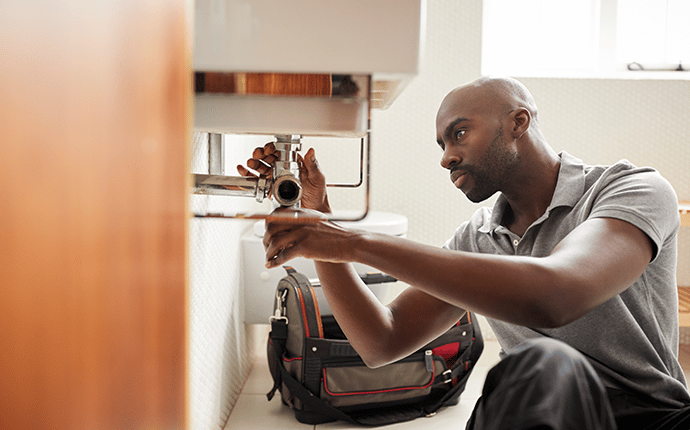
Commercial Plumbing Services
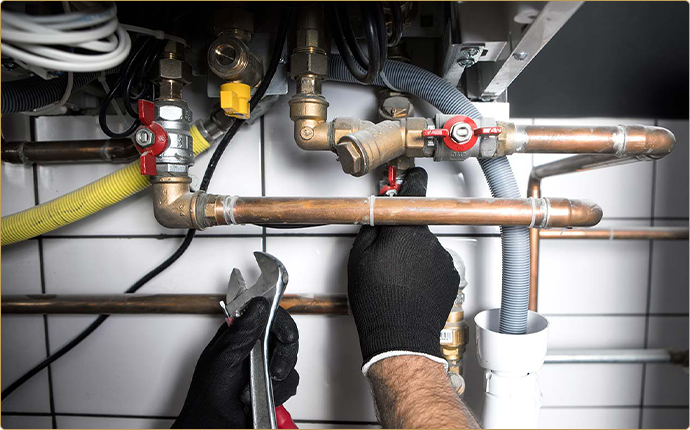
Gas Line Installation and Repair
Plumbing Services
- Plumbing Problems at Home or Work? Rely on the Delk Plumbing Difference
- Protect Your Home with Delk's Residential Plumbing Services
- 5 Signs It's Time to Call Our Plumbers in Lincolnville, SC
- Keep Your Water Heater Running Correctly with Delk Plumbing
- Drain Cleaning Done Right from Delk Plumbing
- Protect Your Property with Delk's Gas Line Installation and Repair
- Looking for the Best? Contact Delk for Quality Plumbers in Lincolnville, SC
Service Areas
At Delk Plumbing, we take your plumbing needs seriously. Our licensed, insured technicians strive to get the job done right the first time, no questions asked.
Protect Your Home with Delk's Residential Plumbing Services
Did you know that the average South Carolina homeowner uses around 100 gallons of water every day? It's logical to think that something may go wrong with that amount of water in constant use. Considering many homeowners wait until the last minute to address their plumbing problems, that's especially true.
Unfortunately, it's common for homeowners to misdiagnose or misunderstand the plumbing issues they're facing. And if they can provide a solution, it's only a short-term fix. Even then, making one wrong move could make the problem worse. That's why having a trustworthy team of plumbers in cityname, state, to rely on is crucial.
When it comes to plumbing for your home, Delk Plumbing provides a long list of services, from drain cleaning and hydrojetting to sump pump repair and water heater services. Is your toilet so clogged that you need to hire a professional? Do you think you might have a leak? At Delk Plumbing, we're here to address all of your residential plumbing needs, small or large. Need a water softener service? We can help with that too!
Whether you have an annoying leak or a more serious plumbing emergency, our team of experts is here to serve you with expertise and efficiency. That way, you can go about your day without being disrupted.
Some of the most requested plumbing services we offer include:
- Drain Cleaning
- Water Leaks
- Hydro jetting
- Clogged Toilet Service
- Water Heater Services
- Garbage Disposal Service
- Sump Pump Replacements
- Slab Leak Repair

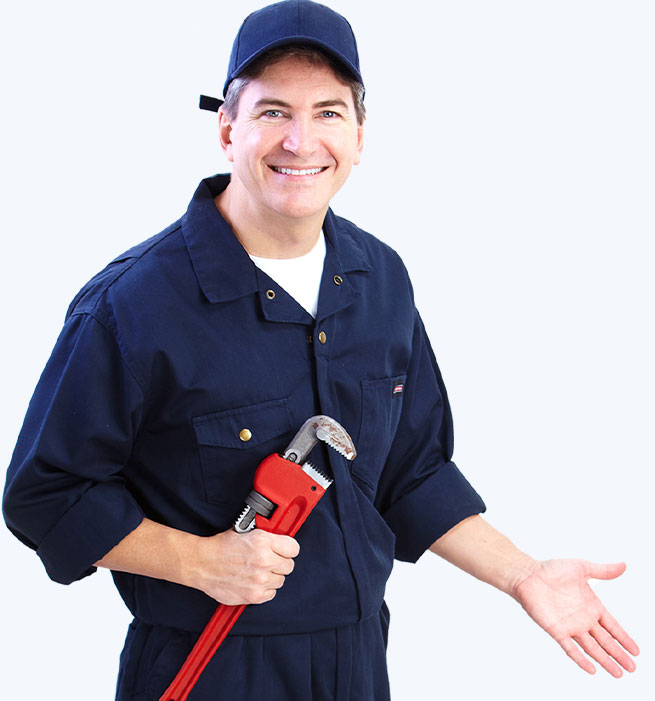
5 Signs It's Time to Call Our Plumbers in Lincolnville, SC
"When is it time to call a plumber near me?"
In terms of commonly-asked questions, this is a big one. Most people would like to think they'd know when they have a plumbing issue at home. In reality, plumbing problems can be pretty tricky to diagnose without the help of a professional. Many serious plumbing problems aren't easy to spot without a sharp eye and experience.
If you're unsure whether you need to call a plumber, consider these common signs that it's time to call Delk Plumbing:
Contact Us
Get Service Now 843-873-6331
843-873-6331

Water Draining Slowly
With enough time, every shower and sink becomes susceptible to slow drainage caused by soap scum, hair, and other debris. These problems are typically easy to fix with regular upkeep and cleaning. However, if all the pipes in your home are draining slowly, your main sewer line may be clogged. If your home has a clogged sewer line, it can quickly become a nightmare. Call Plumb Pro ASAP, as clogged or blocked sewer lines are emergency-level problems.

Brown Spots on Walls and Ceilings
Any spots are ugly when they stand out on your ceilings or walls. But if you see brown spots, you could have a leak in your attic space or elsewhere in your home. Water leaks are terrible all around, both from a repair standpoint and a health standpoint. You wouldn't want your family breathing in mold spores, after all. If you see spots forming on your walls or ceilings, call Delk Plumbing ASAP. Waiting too long could mean more expensive repairs and renovations.

Low Water Pressure
Few things are as frustrating as taking a shower with low water pressure. If the water coming out of your shower head is unreasonably low, it could be a sign that you have serious pipe clogs. Delk Plumbing can help shed light on your low water pressure problem and take care of the problem quickly and efficiently.

Discolored Water Pipes
When was the last time you checked the plumbing under your sinks or in your basement? If it's been more than a few months, make it a point to do so soon. Inspecting your home's water pipes for signs of discoloration is a must-do. Call a reliable plumbing company like Delk Plumbing soon if you notice strange colors on your home's piping. You could save yourself costly repairs and a whole boatload of headaches.
Delk Plumbing Pro Tip: Look for white or green stains near the joints and seams of your copper water pipes. If you notice such spots, your pipes may be corroding from a leak. Cast-iron pipes and galvanized steel that have red patches are most likely full of rust and are likely to burst.

Burbling Toilet
Apart from flushing, your toilet should be pretty quiet. However, if you hear burbling noises at random times during the day, you might have a plumbing problem. Noticeable gurgles from your toilet might mean that your vent stack is obstructed. You could also have a severe sewer line block. Either way, this type of issue is best handled by a trustworthy plumbing company like Delk Plumbing.
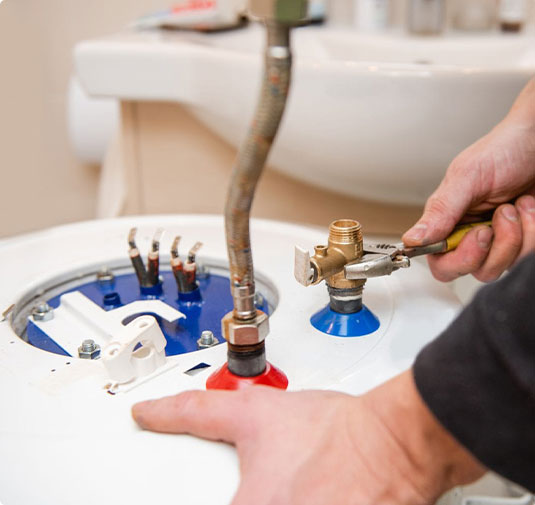
Keep Your Water Heater Running Correctly with Delk Plumbing
Your water heater is a central part of your everyday life. From bathing and cooking to cleaning and washing, you need hot water in your home. But when your water heater is on the fritz, it can cause a long list of problems that snowball out of control quickly.
Fortunately, our plumbers in Lincolnville, SC have the tools and knowledge to ensure your family doesn't go without hot water. Whether you need a quick water heater repair for a small problem or you need a full replacement unit, Delk Plumbing is here to help.
Call Us For Servise
 843-873-6331
843-873-6331
How Long Will Your Water Heater Last?
With the right maintenance and care, your home's hot water heater should last a long time. In general, a well-kempt water heater should last more than ten years. Like all things, however, nothing lasts forever. With time, your water heater will get to a point where it will need heavy maintenance or even replacement before your life is interrupted.
At Delk Plumbing, our team of experts can help repair or replace your home's water heater - whichever is best for your budget and your situation.

Common Signs You Need Water Heater Repair
Is your family complaining that the hot water is out? Have you heard strange noises coming out of your water heater? If so, your water heater may be compromised. Here are a few of the most common signs you need to call Delk Plumbing for water heater repair services:

1.Hot Water Doesn't Last
Your water heater is designed to give you hot water any time. That's why it has gallons of hot water inside. But if you notice your water going from hot to cold quickly without using the cold water, call Delk Plumbing. Your water heater is probably in need of repair.
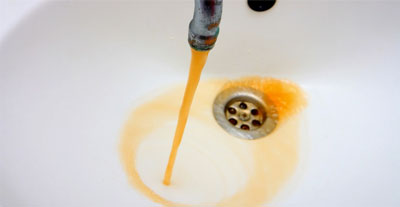
2.Discolored Water
When you get water out of the tap, it should be clear and colorless. If it's grey, brown, or rust-colored, chances are your water heater is to blame. Contaminated water is a big health issue, so be absolutely sure you don't drink it. Instead, call Delk Plumbing. Our team will be out to your house ASAP to help resolve the issue.

3.Strange Water Temps
When you use your hot or cold water, you expect it to be hot or cold, not lukewarm or freezing. If you notice irregular water temperatures in your home, it should be a red flag. Call Delk Plumbing for a thorough, efficient water heater inspection.

4.Bangs and Pops
While older water heaters will buzz occasionally, loud knocking and banging are not common for any water heater. If you hear unusual sounds from your water tank, it's time to call our team of plumbers in Lincolnville, SC. Our specialists will inspect your system and provide detailed repair and replacement options for you to consider.
Drain Cleaning Done Right from Delk Plumbing
The drains in your home have one function - to keep materials and debris from entering your plumbing system, so your pipes and sewer lines don't clog. Unfortunately, even the most pristine drains will develop some blockages with time. When that happens, it's vital to call drain cleaning experts like Delk Plumbing to solve your problem. Otherwise, a small clog could spiral into a costly scenario you never expected.
Delk Plumbing has dealt with every kind of drain issue you can think of, from clogged toilets and sinks to stopped-up laundry and shower drains. Unlike some plumbing companies in South Carolina, we have the proper tools and experience to solve your drain problem on time, and at a price you can afford. Whether you have a minor clog that needs a simple hand snake solution or a complex issue that necessitates hydrojetting, we've got your back.
Our plumbers in Lincolnville, SC, start with a meticulous inspection to diagnose your drainage issue. Once we know the extent of your problem, we'll explain the issue to you in easy-to-understand terms. We'll then explain the various ways we can remediate your drain clog, along with pricing and project ETA.
Our clients rely on us for a number of drain cleaning services, including:
- Drain Inspections
- Drain Cleaning
- Drain Repairs
- Drain Unclogging
- Drain Snaking
- Drain Replacements
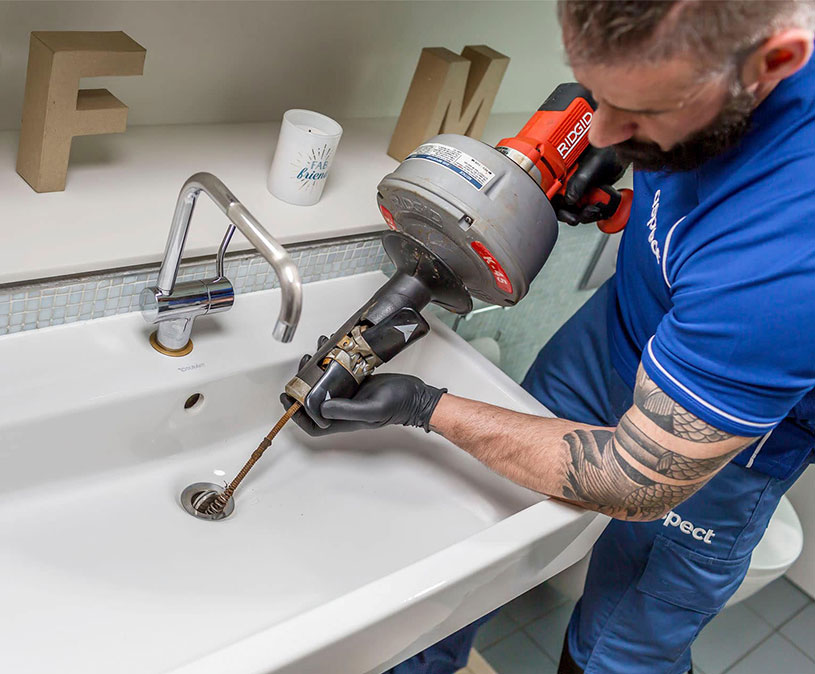
Plumbers Drain Cleaning FAQS
As Lincolnville's top choice for plumbing services since 1978, we've learned a thing or two about drain cleaning over the years. To keep yourself educated and up-to-date, here are answers to some of the most common questions we're asked:
Q:How many times per year should I have my drains cleared?
A:That all depends on what's going down your drains and how often they're used. If you have a large family, leftover grease from food and hair from showers will cause clogs quickly. In this scenario, you should clear your drains often. If you live alone and don't use your kitchen or laundry drains often, you shouldn't have to clear them as frequently as a large family.
Q:More than one of my drains is moving slowly. What's happening?
A:When two or more drains are moving slowly, you may have a main sewer line problem. These clogs are often caused by wet wipes, tree roots, and kitchen grease.
Q:How do you clean clogged drains?
A:That depends on the type of drain that's clogged. You can clean sink drains with simple household items like vinegar and baking soda. Other drains, like bathtub drains, are best cleaned with a zip stick to remove hairballs. If you're unsure how to clean a clogged drain, it's always best to rely on professional plumbers like Delk Plumbing. Don't make the situation worse than it already is!

Protect Your Property with Delk's Gas Line Installation and Repair
Did your brand new gas range just arrive, and you need help installing it? Is something wrong with your gas line, and you need it repaired? Delk Plumbing isn't only a full-service plumbing company - we also specialize in gas line installation and repair.
As a general rule, if it involves gas of any kind, it's best handled by licensed, trained, insured professionals. One minor slip-up can be catastrophic when it comes to gas line installation and repairs. To ensure your family stays safe, Delk Plumbing is ready to serve all of your gas line needs, so you know your home is protected without question.
From broilers and gas grills to ranges and gas stoves, our gas line experts are here to provide you with peace of mind.
Delk Plumbing Notice: Do not ever try to install gas lines on your own. Always contact a qualified professional who can follow the strict regulations South Carolina dictates.
Delk Plumbing offers several gas line services, including:
- Gas Line Installation
- Gas Line Repair
- Gas Leak Detection
- Gas Line Safety Tests
- Gas Line Installation & Repair for Businesses


Looking for the Best? Contact Delk for Quality Plumbers in Lincolnville, SC
When you need a residential plumber you can trust, nobody is more qualified to serve you than Delk Plumbing. With quick response times, years of experience, and stellar customer service, we can handle any plumbing job, large or small.
Unlike other plumbing companies in Lincolnville, we aim to exceed expectations with transparent pricing that is easy on your wallet. No sketchy fine print. No awkward upsells. Only reasonable rates and the highest quality plumbing services in town.
Whether you need a simple leak inspection or a complicated sump pump replacement, we're here to help. Contact our office today so we can learn more about how we can serve you.
Get Service Now
Appointment For Plumbing Services
Latest News in Lincolnville, SC
Recognizing Lincolnville’s place in history
Post and Courierhttps://www.postandcourier.com/photo_galleries/recognizing-lincolnvilles-place-in-history/collection_0839a4f6-dbc6-11e8-8306-7341b18bf19f.html
Officially incorporated in 1889, Lincolnville quickly became a place where formerly enslaved families flocked during Reconstruction. In these early years, community leaders built a one-room jail, established a small school and formed churches.Buy NowBuy NowLincolnville Elementary School class from the 1940s. ProvidedBuy Now...
Officially incorporated in 1889, Lincolnville quickly became a place where formerly enslaved families flocked during Reconstruction. In these early years, community leaders built a one-room jail, established a small school and formed churches.
Lincolnville Elementary School class from the 1940s. Provided
To many, Lincolnville is a place on the route between Ladson and Summerville. Wade Spees/Staff Friday, October 12, 2018
Lincolnville’s history was compiled and written by Christine W. Hampton and Rosalee Washington. Wade Spees/Staff Monday, October 15, 2018
Thought to be the oldest house in Lincolnville. Wade Spees/Staff Monday, October 15, 2018
“Community is oneness. We want them to know the love of God. We want to demonstrate the kind of character Christ has,” said Jane Bruno and Donna Turner (right) during a noonday prayer meeting in Lincolnville on Monday, October 15, 2018. Wade Spees/Staff
Lincolnville’s long history is tied to its location near a railroad artery. Wade Spees/Staff Friday, October 12, 2018
Lincolnville’s jail is its oldest building, from the late-1800s. Wade Spees/Staff Monday, October 15, 2018
“Our goal is to help get the town on the map,” says Rev. Edward Johnson who wants to highlight community’s history — including its oldest building — a jail from the late-1800s.
Efforts to obtain a historical marker for Lincolnville were led by New Vision Cathedral’s Rev. Edward Johnson. Wade Spees/Staff Monday, October 15, 2018
As featured on
Next week’s topic: Close-up
From Sue Austin of Summerville, “This is an artist in action in Loreto, Italy. It is in the piazza of the Basilica della Santa Casa in the LeMarche region of Ancona.”
From Sherrill Biggers of Charleston, “Walking north on Anson Street and looking down Guignard Street, you have to look twice to see that the horse, and his/her window, are not real, but instead are street art at its most realistic. Taken in the summer of 2021 at Old South Carriage Co. in Ansonborough.”
From Kay Bilisoly of Goose Creek, an image of Graffiti Park in Goose Creek.
From Ronald Allan Charles of Goose Creek, “Interesting painting on wall of a café in Corte, Corsica.”
From Merv Gibson of Charleston, “The ‘Hat Man’ mural was painted on the wall of the 48 Broad Street building in Charleston, SC, to advertise the Plenge Haberdashery. The entire painting is a montage of hats.”
From Carl Johnson of Mount Pleasant, “Cologne, Germany in August 2022. A message from the street artist that rings especially true in today’s crazy world.”
From Rosemary O’Grady of Goose Creek, “Photo taken in Philadelphia, PA, in 2011.”
From Russell Read of Mount Pleasant, “Photo taken in Hattiesburg, MS at the Hattiesburg Pocket Museum.”
From Ken Schaub of Daniel Island, “Framed art on the side of an old building in Pickens, SC.”
From Herbert Schiller of Mount Pleasant, “Street art in Valparaiso, Chile.”
From Lara Wilson of Mount Pleasant, “A mural on a street in Lisbon, Portugal.”
From Louis Yuhasz of Sullivan’s Island, “This photo was taken at the Mas X Menos grocery store in Jaco, Costa Rica, where the street art is truly amazing.”
Military families honor veterans at abandoned cemetery in Lincolville
Alexis Simmonshttps://www.live5news.com/story/38293122/military-families-honor-veterans-at-abandoned-cemetery-in-lincolville/
LINCOLNVILLE, SC (WCSC) - Military families are rallying to preserve an abandoned Lincolnville cemetery with veterans buried from World War I and World War II.There are also veterans buried dating back to the 1800s.The cemetery is tucked behind the woods off of Lincolnville near Greenwood Street.Disabled Veteran Shirley Zinn has been on a mission since 2015 to protect the property and find out who is buried there."This angers me. These people are forgotten. How many stones out here say 'gone but never forgott...
LINCOLNVILLE, SC (WCSC) - Military families are rallying to preserve an abandoned Lincolnville cemetery with veterans buried from World War I and World War II.
There are also veterans buried dating back to the 1800s.
The cemetery is tucked behind the woods off of Lincolnville near Greenwood Street.
Disabled Veteran Shirley Zinn has been on a mission since 2015 to protect the property and find out who is buried there.
"This angers me. These people are forgotten. How many stones out here say 'gone but never forgotten.' This is forgotten," Zinn said.
For the past few years she along with others have placed flags by the graves of veterans for Memorial Day.
The property has not been maintained so several markers have been covered and it's difficult to walk through the grave site because the grass and plants are overgrown.
"Honestly our veterans need to be honored. We need to have stones where they lay," Zinn said.
Zinn says at least 15 grave markers are gone since her first visit a few years ago.
While at the site she uncovered one today.
"They're not in here or they're so deeply buried we can't find them," Zinn said.
Leaders of the Veterans of Foreign Wars Post 3433 in Ladson are helping to preserve the cemetery.
They have a vision of transforming the space.
"Make it into a park where people can come out and visit their loved ones," said Junior Vice Commander of the VFW Post 3433, Robert Zdenek.
They're asking for help in restoring the property because there is a large amount of work to do.
"For them to be forgotten completely and literally just thrown to the rubble the way this place has been maintained is totally unacceptable," said Commander of the VFW Post 3433 Todd Howard.
The cemetery backs up to the Lakes of Summerville. There's a fence that separates them.
"They deserve to be remembered for their lives for what they've done, not only the veterans but the other people who are buried here as well," District 1 Commander for the VFW Department of South Carolina Edwin Tufts said.
Zinn says in 2015 she counted 27 non-military people buried there and about 21 World War I and World War II veterans buried there.
"If you put on that uniform, no matter what uniform it was, you honored our country and we deserve to honor you back," Zinn said.
The group will attend the Lincolnville Town Hall Meeting next Wednesday at 7 p.m. to make town officials aware of the conditions of the cemetery in hopes of getting help to maintain it.
If you'd like to help with the efforts you can reach the Junior Vice Commander of the Veterans of Foreign Wars Post 3433 at 843-568-6811.
Copyright 2018 WCSC. All rights reserved.
Lincolnville added to national Reconstruction network
Andy Brackhttps://charlestoncitypaper.com/2022/07/06/lincolnville-added-to-national-reconstruction-network/
It’s not every day that a whole town gets added to a national historic network, but that’s what happened Tuesday for Lincolnville, a town of about 2,500 people on the edge of Charleston County near Summerville.The National Park Service announced Tuesday that Lincolnville and four other sites were new additions to the Reconstruction Era National Historic Network, a group of sites largely centered on South Carolina that help...
It’s not every day that a whole town gets added to a national historic network, but that’s what happened Tuesday for Lincolnville, a town of about 2,500 people on the edge of Charleston County near Summerville.
The National Park Service announced Tuesday that Lincolnville and four other sites were new additions to the Reconstruction Era National Historic Network, a group of sites largely centered on South Carolina that help to tell the story of American Reconstruction after the Civil War. It’s part of an effort established in 2019 to create the Reconstruction Era National Historic Park in Beaufort.
Lincolnville’s part of the Reconstruction story is key to understanding the transformation that the United States underwent as newly freed African Americans became integrated into the country’s social, political, economic and labor systems.
Lincolnville, the Park Service said in a news release, is a “freedmen’s town founded in 1867 by seven African American men who purchased 620 acres to create a community of homes, churches and schools for African American people, primarily of Gullah Geechee heritage, who had migrated from the Sea Islands.”
Some of the descendents of original settlers still live today in the small town “among original structures, cemeteries and live oak trees, actively preserving their rich Gullah Geechee heritage and celebrating their ancestors’ ability to overcome adversity during Reconstruction to found Lincolnville.”
“These sites tell critical stories related to the Reconstruction Era,” said Reconstruction Era National Historical Park Superintendent Scott Teodorski in the release. “They join sites from across the country that focus on this important period in our history. We are pleased to welcome these new sites to the network and work with them to share their stories.”
The Rev. Richard Cain (1825-1887), a major Reconstruction leader who pastored Charleston’s Emanuel AME Church after the war, is credited with leading the effort to found Lincolnville. He later was elected to the state Senate in 1868 and served two terms in the U.S. Congress.
“He also purchased more than 500 acres of land about 25 miles north of Charleston and sold lots to African Americans,” according to “We Are Charleston: Tragedy and Triumph at Mother Emanuel” by Herb Frazier, Bernard Powers and Marjory Wentworth. “These initial sales were the basis for the settlement of Lincolnville, which Cain planned to become an all-black town in which the residents could show their capacity for discipline, order and prosperity.”
About half of Lincolnville’s residents today are Black, according to Census Reporter.
Three other South Carolina sites added to the Reconstruction network Tuesday were Redcliffe Plantation State Historic Site in Aiken County; Randolph Cemetery in Columbia; and the Schofield Normal and Industrial School in Aiken. Also added was the D.C. Legacy Project: Barry Farm-Hillsdale in southeast Washington, D.C.
New Lincolnville historical marker honors area's first public school for blacks
Caleb McCraw cmccraw@journalscene.comhttps://www.postandcourier.com/journal-scene/community-news/new-lincolnville-historical-marker-honors-areas-first-public-school-for-blacks/article_5ed084a1-63cf-535a-adc4-2b12498f829f.html
On June 29, a historical marker was dedicated at the Lincolnville Town Office to commemorate the Lincolnville Elementary School, located at the same building from 1924 to 1969.Former students, staff, administrators and city government officials flocked to the event. Pictures were displayed, stories were told and memories were shared. The glee club even reunited to sing “Every Time I Feel the Spirit.”Former Principal Eugene Willis said that it was an honor to see all of his students return to honor their former schoo...
On June 29, a historical marker was dedicated at the Lincolnville Town Office to commemorate the Lincolnville Elementary School, located at the same building from 1924 to 1969.
Former students, staff, administrators and city government officials flocked to the event. Pictures were displayed, stories were told and memories were shared. The glee club even reunited to sing “Every Time I Feel the Spirit.”
Former Principal Eugene Willis said that it was an honor to see all of his students return to honor their former school and take pride in it.
Lincolnville School was one of over 5,000 schools built by the Rosenwald Foundation, established by Julius Rosenwald, part owner of the Sears, Roebuck, and Company. His mission was to build schools for African-American children across the South.
Construction was completed in 1924 for $6,100, and the local school was the area's first public school for African-American children. Four teachers taught first through eighth grade until 1953, when it was expanded to Lincolnville Elementary School; afterward the school only offered grades first through seventh. The facility closed in 1969 after the desegregation of Charleston County Schools.
In 2008, an effort commenced to try and preserve the school, and the Lincolnville Elementary School Alumni Foundation was established to meet that goal. In November, the foundation focused on securing a historical marker and received donations for the project from alumni who had moved as far away as Sweden.
Today's Top Headlines
“People should always remember their roots and heritage and take pride in it and pass it from generation to generation,” said Anna Ruth Williams Gleaton, chairperson of the foundation.
Gleaton was happy to see the marker finally in place.
“It is just so wonderful to see it,” she said. “I know our parents would be so proud of us.”
Fellow alumnus Christine Hampton also marveled at the large number of former students who returned for the dedication.
In addition to the $2,200 price tag for the marker, a large project cost was landscaping improvements on the property, which alumni also helped fund.
Charles Duberry, Lincolnville mayor and former Lincolnville Elementary School student, said that they are all one big family and thanked all community members for turning the foundation's dream into a reality.
Rosalee Washington, who attended the school and later returned to teach, said she believes the marker will now keep the school's legacy alive.
What drives you crazy? The intersection of Lincolnville Road and Ladson Road
Megan Feehttps://www.counton2.com/news/local-news/what-drives-you-crazy-the-intersection-of-lincolnville-road-and-ladson-road/
LADSON, S.C. (WCBD) – Are you frustrated with traffic backups in Ladson? One resident has what they feel would be a simple fix to help alleviate a major intersection.The traffic pattern and potholes at the intersection of Lincolnville and Ladson roads have been a source of frustration for many drivers in the Ladson area. The area sees backups during the morning and afternoon rush hours often.One News 2 viewer who drives through the intersection daily believes a turn lane could make all the difference.Karen Fonkert ...
LADSON, S.C. (WCBD) – Are you frustrated with traffic backups in Ladson? One resident has what they feel would be a simple fix to help alleviate a major intersection.
The traffic pattern and potholes at the intersection of Lincolnville and Ladson roads have been a source of frustration for many drivers in the Ladson area. The area sees backups during the morning and afternoon rush hours often.
One News 2 viewer who drives through the intersection daily believes a turn lane could make all the difference.
Karen Fonkert said that with so many neighborhoods on Lincolnville Road – and even more being built – backups in Ladson are only getting worse. Especially at the Lincolnville/Ladson Road intersection. She said what is normally an eight-minute commute with no traffic, is often much longer.
“Usually, it’s about a 20-minute wait, just at the light. It backs way up, about a half mile, normally. And so if there’s an accident anywhere along there, it’s even worse,” said Fonkert.
As it stands now, cars move left to leave space for those turning right. But instead of a right turn lane, cars have to traverse a mess of dirt and potholes where the road drops off.
In fact, Fonkert said she once saw a truck break its axle when its tire fell into a pothole. But she says some new pavement could solve the problem.
“What I really think would help, and a lot of people have said this too, if there were a right turn lane. That would allow traffic to keep going through, and it maybe wouldn’t back up so far back on Lincolnville Road,” she said.
The roadway is maintained by the state. News 2 asked officials with the South Carolina Department of Transportation if they would be willing to look into paving a legitimate turn lane – but unfortunately, they only came up with this response:
“There are not any upcoming projects planned for this intersection.” They encouraged any concerned residents to reach out to their customer service center.
If this intersection drives you crazy, you can let SCDOT know. And if there’s any other roadway issue, you’d like for us to look into, send an email to mfee@wcbd.com.
Disclaimer:





